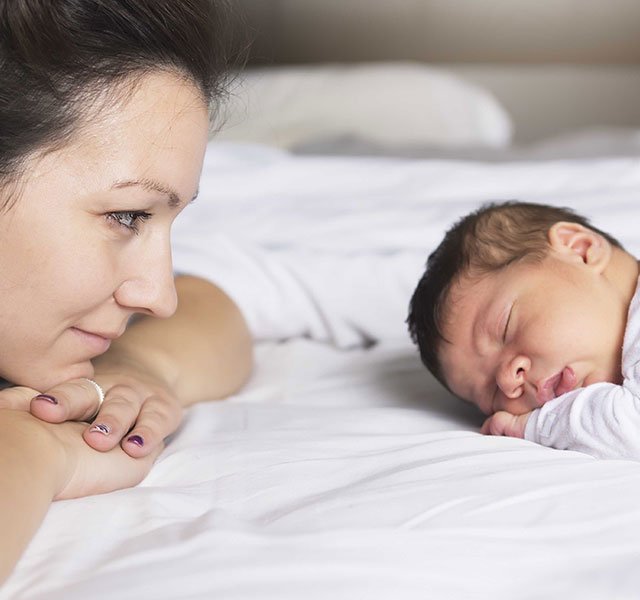If you’re into your mid-30s and not yet ready for kids, you’re certainly not alone. More women are choosing to have children later in life for a variety of personal reasons. In fact, research shows the number of women delaying pregnancy until their mid-30s and 40s is at an all-time high.
Instead of settling down and having babies, many women are earning advanced degrees, getting married or finding a partner later in life, or pursuing career goals. And while all of those things are great choices, they may come at a cost once a woman is ready to start a family.
“Many women don’t realize how fertility declines with age,” says Ahmad O. Hammoud, M.D., fertility specialist at Henry Ford Health. “It’s a common belief that if you feel healthy and take good care of yourself your eggs will stay healthy, but this just isn’t so.”
Normal biological changes that happen as women age affect the quality and quantity of eggs. These changes can make it more difficult to become pregnant and increase a woman’s risk for pregnancy complications or miscarriage. Delaying pregnancy can also increase a baby’s risk for genetic conditions, such as Down syndrome.
“A woman’s risk for these problems increases every year starting at age 32,” Dr. Hammoud says. “By age 40, the risk becomes severe, which is why the health of a woman’s eggs is so important.”
This increased risk may seem daunting if you’re in your 30s and nowhere near ready to have children, but it’s possible to have a healthy pregnancy and baby even if you start later in life. Freezing your eggs leaves the door open for you to choose motherhood at a time that’s right.
“Egg freezing used to be considered experimental, but today’s techniques are safer and result in healthy eggs for nine out of 10 women,” Dr. Hammoud says.
Age isn’t the only reason a woman may wish to freeze her eggs. In some cases, life-saving medical treatments, such as radiation or chemotherapy for cancer, can lower fertility. Egg freezing is also a good option for women with medical conditions affecting the ovaries and fallopian tubes. These conditions may include blocked or damaged fallopian tubes, which may prevent a woman from releasing mature eggs naturally.
If you are considering freezing your eggs, here’s what to expect:
- A fertility specialist observes egg development through a series of office visits to determine precisely when you will release mature eggs.
- You receive hormone treatments, which help the ovaries produce more eggs.
- When the time is right, a short procedure is done under anesthesia to remove (harvest) the eggs.
- The harvested eggs are rapidly cooled and then frozen using a technique known as vitrification.
- The frozen eggs are stored in a special facility until you are ready to start your family.
- When you are ready to become pregnant, fertility specialists thaw the eggs and fertilize them with a man’s sperm to form an embryo. A doctor places the embryo into the uterus during a short procedure.
What’s more, while there is a cost involved with the procedure, some employers are starting to cover the costs of freezing eggs under employee health insurance plans. If you are interested in starting a family later in life, the first step is to talk to a fertility specialist.
Egg freezing is one of many services we offer to help women safeguard their ability to become pregnant. Find out more about this and other solutions for infertility at the Henry Ford Center for Reproductive Medicine.
Ahmad O. Hammoud, M.D., is a fertility specialist who sees patients at the Henry Ford Reproductive Medicine Center at Henry Ford Medical Center - Troy.



